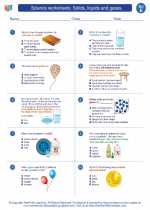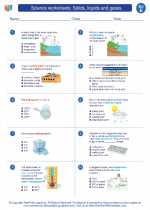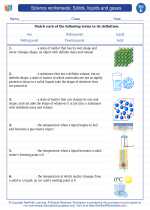Phagocytosis
Phagocytosis is a process by which certain cells engulf and digest foreign particles or microorganisms. This is a vital process for the immune system as it helps to eliminate pathogens and other harmful substances from the body.
Steps of Phagocytosis:
- Chemotaxis: The phagocytic cell is attracted to the foreign particle by chemical signals.
- Adherence: The cell adheres to the particle's surface.
- Ingestion: The cell engulfs the particle, forming a phagosome.
- Maturation: The phagosome fuses with lysosomes to form a phagolysosome.
- Digestion: The particle is broken down and digested by enzymes within the phagolysosome.
- Exocytosis: The waste material is expelled from the cell.
Types of Phagocytic Cells:
- Neutrophils: These are the most abundant type of white blood cells and are the first responders to infections.
- Macrophages: These are larger phagocytic cells found in tissues throughout the body.
- Dendritic cells: These cells are primarily involved in presenting antigens to the immune system.
Functions of Phagocytosis:
Phagocytosis plays a crucial role in the immune response by removing pathogens, dead cells, and other debris from the body. It also helps in the process of antigen presentation, which is essential for activating the adaptive immune system.
Importance in the Immune System:
Without phagocytosis, the body would be more susceptible to infections and would struggle to eliminate harmful substances. Phagocytic cells are a key component of the innate immune response and contribute to the overall defense mechanisms of the body.
Study Guide:
Here are some key points to remember about phagocytosis:
- Define phagocytosis and its significance in the immune system.
- Describe the steps involved in the process of phagocytosis.
- Identify the types of phagocytic cells and their respective functions.
- Explain the importance of phagocytosis in maintaining overall health and immunity.
Be sure to understand the specific roles of neutrophils, macrophages, and dendritic cells in the process of phagocytosis and their contributions to the immune response.
Remember to study the interactions between phagocytic cells and the adaptive immune system, especially in the context of antigen presentation.
.◂Science Worksheets and Study Guides Fifth Grade. Science worksheets: Solids, liquids and gases.

 Worksheet/Answer key
Worksheet/Answer key
 Worksheet/Answer key
Worksheet/Answer key
 Worksheet/Answer key
Worksheet/Answer key
 Vocabulary/Answer key
Vocabulary/Answer key
